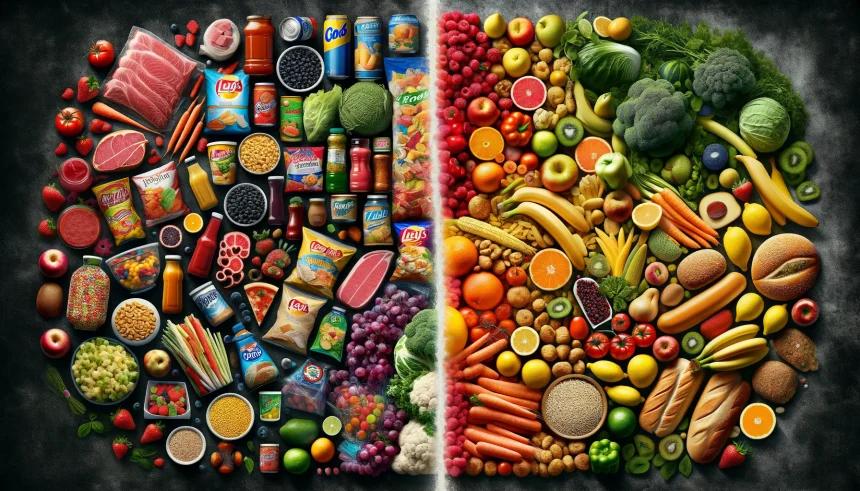Ultra-processed meals have become the preferred option for many in the hectic world of modern living, drawing in customers with their alluring tastes, long shelf life, and convenience of usage. However, a growing corpus of studies is illuminating the shadow side of these comforts, demonstrating a connection to a range of unfavorable health consequences that are very concerning for the general public’s welfare.
The Structure of Highly Processed Foods
Ultra-processed foods are not only long-life versions of their original recipes; rather, they are the result of industrial creation, loaded with a combination of artificial colorings, tastes, additives, and preservatives. This category, which includes anything from sugary drinks to prepackaged sweets, reconstituted meats, and rapid meals, is designed to appeal to consumers’ palates and extend its shelf life at the expense of crucial nutritional integrity.
Solving the Health Mysterium
A growing body of research links eating ultra-processed food to a long list of health problems, including diabetes, heart disease, obesity, and several types of cancer. These correlations have troubling and intricate roots:
The Paradox of Nutrients
Ultra-processed choices are well known for being low in nutrients compared to high in calories. This imbalance has the potential to cause deficiencies in essential vitamins, minerals, and dietary fiber, thus compromising overall health and vigor.
The Metabolic Quagmire and Obesity
The combination of high levels of sugar, fat, and salt found in highly processed foods is a certain way to gain weight and become obese, which are the first steps toward metabolic syndrome and all of its associated health issues. These meals’ artificially enhanced palatability often encourages overindulgence, undermining attempts at moderation.
The Variety of Chronic Illnesses
Studies highlight a link between high ultra-processed food intake and elevated chronic illness risks. For example, an excess of salt may increase the risk of heart disease and hypertension, while an increase in added sugars can promote insulin resistance and lead to type 2 diabetes.
The Gut-Health Conundrum
A diverse gut microbiome is critical, according to new research on the importance of gut health for overall well-being, including immunity, digestion, and mental health. However, the highly processed, low-fiber, high-added meals might upset the microbiota balance in the gut, causing upset stomachs and inflammatory reactions.
Making Your Way to Safer Waters
People are advised to shift toward diets high in whole, minimally processed foods in light of mounting data that negatively impacts ultra-processed meals. Simultaneously, there is a strong cry for public health and governmental organizations to develop policies that support healthier food ecosystems. Examples of these include redesigned food labels, taxes on sugar-filled drinks, and programs to increase the availability and cost of nutrient-dense food options.
In Brief
Ultra-processed foods have an appealing appearance, but their handy exterior hides health risks. As public awareness grows, it is critical that people make informed dietary choices for themselves and their communities, and that politicians provide frameworks that support these decisions. Adopting diets rich in whole, nutrient-dense foods is a critical first step toward mitigating the health risks associated with the current culinary landscape and toward a future society that is both healthier and more lively.








